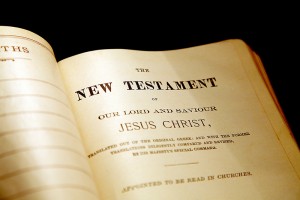Leviticus 26:1–46, Blessing and curses based on obedience to YHVH’s Torah-Word. The corollary to this passage is Deuteronomy chapter 28. These judgments come upon a people who have forgotten their Elohim because they have been blessed materially and in their self-sufficiency have forgotten who the source of their blessings is, and that their blessings are contingent upon obedience to YHVH. These principles are universal, yet how we tend to forget the cycles of history that repeat themselves over and over again like the unstoppable turning of giant millstone grinding into powder those who refuse to learn the lessons from the past. Each generation proudly asserts it’s exceptionalism and that, somehow, it’s immune to YHVH’s inexorable and immutable principles of divine judgment. Only in the perfect hindsight of history can we see the fallacy of this assumption. Ancient Israel failed to learn these lessons as have subsequent nations who claimed to follow the Bible.
In the case of America, and Great Britain before her (and other Christian nations as well), there was in former times a national consciousness of core biblical values and, to one degree or another, a public acknowledgement, acceptance of and respect for the God of the Bible. However, as a nation becomes blessed, it reaches an apogee of prominence, power and wealth where it becomes rich and increased with goods and no longer needs Elohim — or so it thinks. It become fat and forgets the source of its wealth and falls into a state of self-sufficiency leading to spiritual blindness to recognize its true spiritual state (recall YHVH’s warning to a lukewarm church in Rev 3:14–22). This can happen to individuals, churches and to whole societies.
Because YHVH loves his people and wants to walk among them, to be their Elohim and to bless them (Lev 26:12), when they disobey him and walk in ways that are harmful to their well-being, like any loving parent, he is forced to discipline them. Again and again he sends them his prophets and watchmen to warn them that they’re on a path of self-destruction. But because their hearts are uncircumcised, they refuse to humble themselves and repent (Lev 26:41). It’s the same old story over and over again. Human pride insists that “judgments can’t happen to us because we’re so special.” “All things will continue as they have from the beginning” a self-assured society retorts in mocking and scoffing tones to all those who would hold them accountable for their errant ways (2 Pet 3:3–7). If only the great nations and empires that have already trod this well-worn path and are now in the dust bin of history could speak from their graves and this generation had heart ears to hear!
As a loving Father, YHVH doesn’t lower the boom of his full discipline immediately upon his wayward children. He increases the dosage incrementally in hopes that each successive ratcheting down of his judgments will heal the spiritual sickness of his people and bring them to a point of humility and confession of their iniquity (or Torahlessness, Lev 26:40). In this chapter, YHVH reveals four sets of judgments with each one becoming seven times more severe than the previous one (Lev 26:18, 21, 24, 28). This reminds us of YHVH’s end-times judgments upon a rebellious world that has given itself over to devil worship just prior to the return of Yeshua as prophesied in the book of Revelation. There are seven seals, seven trumpets, seven thunders and finally seven bowl judgments.
What can you do? You may not be able to change society, but a societal change begins one step and one life at a time — with your life! That’s the only thing for certain that you can change. You know what needs to be done. Just listen to your conscience — to YHVH’s Spirit knocking at the door of your heart (Rev 3:20), and then repent and obey. It’s that simple.




